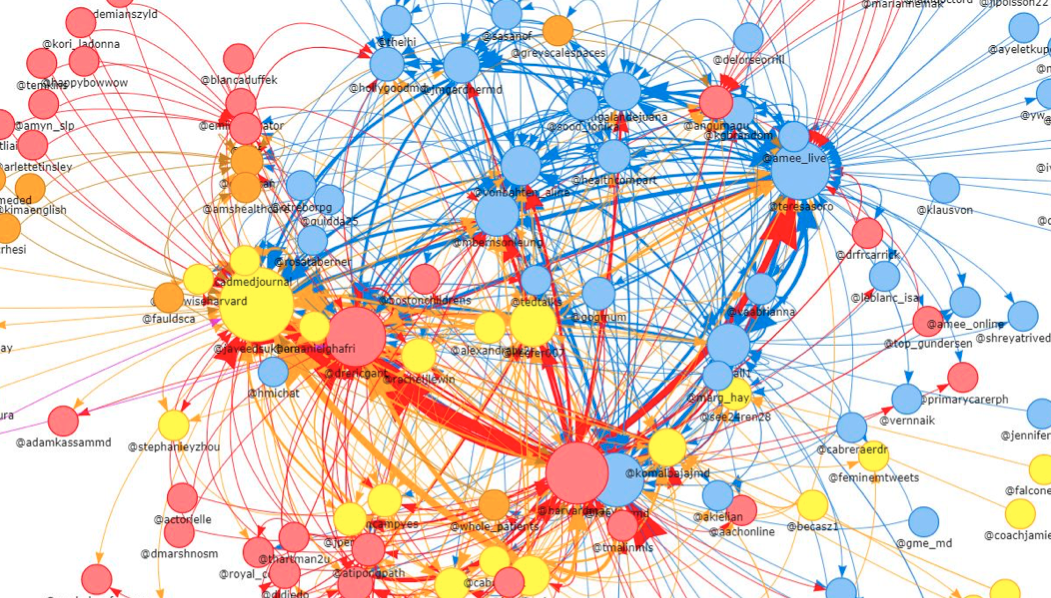During AMEE 2017 there were a few recurring concepts. One of them was Equity and how we, within health professions education, can both be more aware of our own biases and promote equity in health professions education. The subject resonated with a lot of us HMI alumni that attended the conference and we decided to see what our HMI community thought via our September Tweet Chat.
The chat was expertly moderated by HMI alumni Eric Gantwerker MD MMSc (MedEd) [@DrEricGant] and Javeed Sukhera MD, FRCPC, PhD Candidate [@javeedsukhera]. We delightfully noted that there were several first timers to the chat and the engagement also spread to several continents demonstrating that equity in health care is a subject of relevance and significance to many of us.
The structure of the chat was to (Q1) identify in what way we have personally experienced a lack of equity in our own context, (Q2) what barriers to achieving equity we could identify and further (Q3) what strategies we use when we are working towards equity in our own settings. Finally we discussed (Q4) what could be done on an organizational level to bring more attention to the subject.
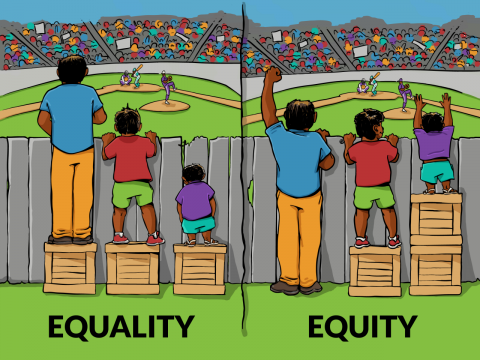
Photo credit: © “Interaction Institute for Social Change. Artist: Angus Maguire.”
Available at: interactioninstitute.org and madewithangus.com
There were a lot of interesting threads within the equity domain. One thing highlighted was the difficulty in being aware of our own biases. This was shared by several participants and something discussed during AMEE as well. Statements like “Medicine as a Culture of No Culture” finds its relevance. Example of how difficult awareness can be is from the video of David Foster Wallace shared by Dr. Miya Benson-Leung where two young fish meet an older fish and the old fish greets the young fish by saying “Good morning, how’s the water?” The young fishes continue swimming and then one of them says, “What’s water….?” Many participants shared examples of educational activities designed to bring awareness to our biases.
Another subject that we kept coming back to was how to look at failure as a way to success. To be able to learn and succeed we need to have an environment that can stand failure, creativity and exploration. In the sense of role modeling we asked ourselves: Are we role modeling failure as a part of learning?
When you flip through the storify you will find both articles and examples of courses for faculty development. Once again this community proved to be both that listening friend and a gold mine of resources. We are so grateful for all of your contributions to create this! We encourage you to comment on the blog about one of your pearls or a “take-away tweet” from the September chat.
Enjoy and welcome to the next HMIchat!
ABOUT THE AUTHORS:
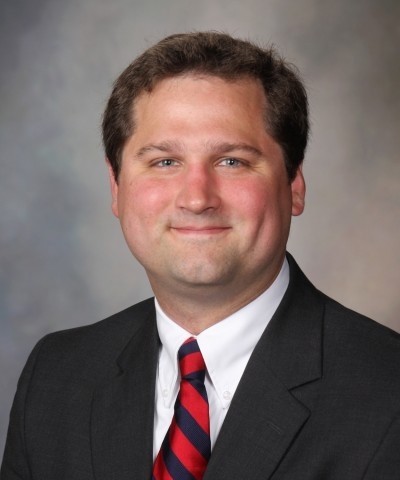
Justin Kreuter, MD is a Clinical Pathologist with subspecialized practice in Transfusion Medicine and Tissue Typing (i.e., organ transplant compatibility) at Mayo Clinic. He primarily teaches with the flipped classroom approach in several graduate medical education and allied health programs. A “newbie” to education scholarship, he has developing interests in teaching clinical judgement, frameworks for feedback, and reflection in medical practice. His main clinical interest is transfusion support for acquired coagulopathies. In his free time, Justin enjoys playing the bass guitar and painting with his daughters.
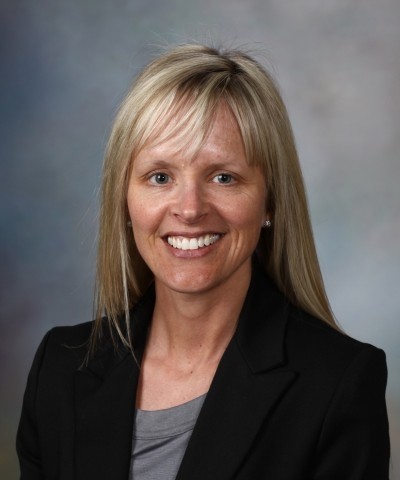
Elissa Hall, EdD (ABD) is the Associate Director of Curriculum and Education Technology in the Office of Applied Scholarship and Education Science at Mayo Clinic. In her role, she engages and facilitates strategic planning for, systematically design of and implementation of enterprise-wide education initiatives aligned with curriculum, assessments, education technology, and digital pedagogy. Elissa, as a faculty developer, coaches medical educators and leads medical education research and scholarship. Elissa enjoys outdoor activities, running, and collaborating with her national medical education colleagues (#hmieducators, #thecgea, @GeneralistMedEd).
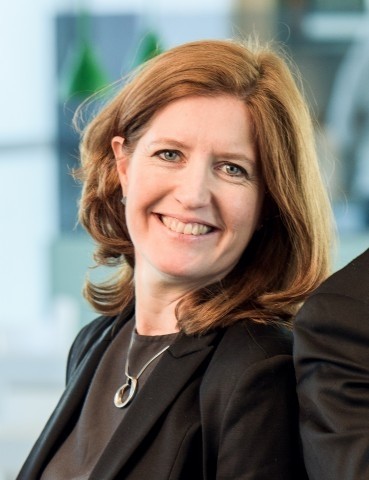
Teresa Sörö, MSc is a Pediatric Specialist Nurse. She is a strategic education developer at Medical Case Centre (MCC) at Karolinska Institutet (KI) and responsible for MCC’s educational programmes. Teresa has considerable experience in implementation of interactive learning, with a background in case based learning. She works with traditional courses as well as digital learning strategies in learning platforms and social media. Her work is mainly within faculty development at KI and residency programmes at the Karolinska University Hospital and she hosts the podcast MedEdTalk on medical education. In her spare time Teresa loves photography, skiing and to enjoy a glass champagne with friends and family.
#hmichat
#hmichat has not set their biography yet

